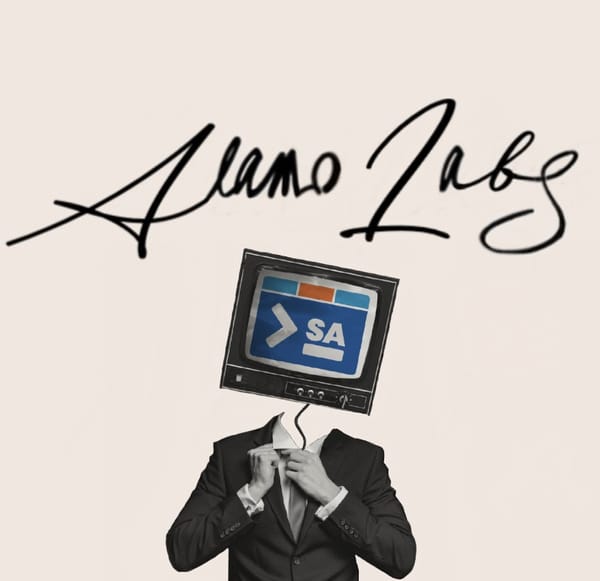Bitcoin the Disruptor

Since the big tech boom has emerged upon us we have seen a big shift in innovation of everything from e-commerce, to music, to travel, the list goes on now we find ourselves at a new stop which is money and how it's transmitted digitally. Specifically bitcoin and how it is able to transmit value over the internet without any third party intermediates. It's very similar to how Napster disrupted the music industry, Uber disrupting the taxi services, and also Air bnb how it was able to disrupt motels and large hotels. It was quite a time to witness the births of these beasts due to nothing of their nature ever being created. Now a days Uber is so common some people use it every day. Air bnb is the general assumption when on vacation. There's even a generation of people that exist now who can't imagine life without streaming services thanks to Napster. All these companies were able to come in and shake the market up enough to create a whole new landscape that had no foundation for such services.

Lets take a look at Napster which was created Shawn Fanning and his friend Sean Parker in 1999. While Fanning was attending Northeastern University he found difficulty when he and others would try to find and download music files over the internet. At the time, finding and sharing music files was a fragmented and inconsistent process. Fanning decided to take on this problem by creating a software application that made it easy for users to share and download music files directly from each other's hard drives. The key innovation of Napster was its centralized server to index the files, which simplified the search process for users, while the files themselves were hosted and transferred directly between users' computers in a decentralized manner. This approach allowed for efficient searching and downloading of music files, which was an improvement over previous methods. The service gained popularity after its release, particularly among college students who used the platform to share and discover music. At its peak, Napster had millions of users and changed the way people thought about music consumption, setting the stage for future digital music services and debates over copyright and digital rights management. However, Napster's method of file sharing quickly provoked the music industry. Record companies and artists argued that Napster facilitated copyright infringement on a massive scale, as it allowed users to download copywritten music without paying for it. This led to legal battles that ultimately resulted in Napster being shut down in July 2001. Despite its legal and operational troubles, Napster's legacy lives on, influencing the development of later digital music services such as Spotify, Apple Music and the culture of online file sharing, and streaming.

Then Uber was created in March 2008 out of a simple need from two men attending a conference in Paris who were unable to get a cab. The initial thought was what if we could request a ride from our phone? When Garret Camp returned to Silicon Valley he was still obsessed with this idea that he and his future partner Travis Kalanick had came up with which led to him purchasing the domain ubercab.com. By 2009 Camp had persuaded Kalanick to join ubercabs chief incubator. It was first tested in New York in early 2010 with three cars then the initial launch took place in San Francisco in May. Soon after Uber expanded to Paris, Seattle, New York, Chicago, Boston, Washington, D.C. Eventually it got to a point in 2014 where taxi drivers in Berlin, Madrid, and London started a large scale protest against Uber due to them by passing local laws and avoiding license fees. They eventually had the ban overturned in court and were granted licenses to operate. Through all the ups and downs Uber remains one of the fastest growing companies on the planet, and has birthed other companies similar to them such as Lyft.

Now let's take a look at Air bnb in which their story actually took place in 2007 when the founder Brian Chesky, Joe Gebbia and Nate Blecharczyk were renting out air mattresses in their apartment to attendees of a conference in San Francisco. Originally it was to just pay their rent, due to all hotels being booked in the area, but they sold out of space and even had people sending resumes just to prove they were well intentioned and could be trusted. Soon after they realized they were onto something. At first investors were too scared to meet with them calling them crazy and saying things such as there would possibly be a murder on their hands at one of these houses. Eventually they joined the famous Y-Combinator, a start up accelerator program out of San Francisco, even though they didn't want to and had already been included in various articles and interviews. Through the program they received a lot of advice and guidance, which included placing themselves in renters shoes, and realized cost and visuals were a big deal. Due to at the time the country was in a major recession they soon realized they resonated with millennials who wanted to travel and do it cheap. Also they began posting high definition images of accommodations and received positive feed back resulting in profits rising within the week of the initial launch. At first the major hotel chains did not acknowledge them as a type of competitor and had never even heard of them, however they soon found out about them and would even come out saying they were amicable but behind the scenes things were getting spicy between the two due to them taking some market shares from hotels. Now we see other services like Vrbo, and Sonder built on top of this new foundation.

Then there was Bitcoin, the protocol launched in 2009 by the famous Satoshi Nakamoto, whether he was a group of coders who came up with the pseudonym or a master craftsmen who wanted to keep his identity anonymous the world may never know. However it was actually good that he did this, building and putting bitcoin out there for the world with no head to cut off. Hal Finney famously tweeted "Running bitcoin" on January 11, 2009 and shortly two days later received the first bitcoin transaction from Nakamoto. As bitcoin grew and began to catch on among cypherpunks we began to see some price appreciation which led to the infamous Pizza day. On May 22, 2010 Laszlo Hanyeez paid Jeremy Strudivant 10,000 bitcoins for two large Pizzas and this marked this first time anyone had bought anything with bitcoin. Later that year Bitcoin Market was the first cryptocurrency exchange to be created that allowed people to buy and sell bitcoin. Soon after this in 2011 bitcoin reached dollar parody meaning one bitcoin was equal to one united states dollar, in 2013 that number changed dramatically as 100usd was equivalent to 1 bitcoin marking a time in history where bitcoin was actually more valuable that 1 united states dollar due to its scarcity and the fact that we print our own money which is backed by nothing this was destined to eventually happen as bitcoin grew. In 2015 bitcoin closed the year at +35% which is mind blowing compared to gold closing the year at -10% and US stock indexes down a whopping -30%. then in 2017 we saw bitcoin go on a tear going up to $10,000 per coin entering a bull market and hitting an all time high of $19,650. By the end of 2017 price had plummeted to sub 10,000 levels even going as far down as 3,000 usd per coin. Due to what many call crypto winter and also a bunch of ponzi schemes happening due to shit coins. Next in 2021 we saw a new all time high 68,991 usd which again didn't last due to the collapse of businesses such as FTX, Celsius, BlockFi all of which had to sell bitcoin due to all going bankrupt which again brought the usd price down to 16,000 usd. Now we find our selves here in 2024 breaking our previous high and reaching a new milestone of 73,794 usd. Where we go next, who knows? The beautiful thing is, Bitcoin doesn't care—tick tock, next block. It just keeps running, doing one thing: keeping record of the blockchain. Being perfect money. The question to be asked is, what can be built on top of such a thing? As Bitcoin gains more mainstream adoption, we are starting to see a new frontier of businesses being built on a Bitcoin standard. For example, invoicing services, escrow services, AI, healthcare, wine, security—you name it. What we are seeing now is that the tech sector is peaking. Since the inception of the smartphone and Google, we have yet to see anything rise up to these levels, or surpass them. The thing with bitcoin is there is no legacy finance or big players in the space yet which gives the plebs a fighting chance to break barriers and create things that don't exist yet, possibly something that could rival or better a Uber, Air bnb, or the Smartphone.
-Puro Bitcoin





